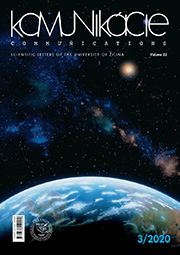Decomposing the Influencing Factors of Energy Intensity in the Passenger Transportation Sector in Indonesia
Decomposing the Influencing Factors of Energy Intensity in the Passenger Transportation Sector in Indonesia
Author(s): Dhani SetyawanSubject(s): Energy and Environmental Studies, Environmental and Energy policy, Transport / Logistics
Published by: Žilinská univerzita v Žilině
Keywords: energy efficiency; passenger transportation; energy intensity; Indonesia;
Summary/Abstract: Indonesia's transport sector has experienced rapid growth that has caused excessive fossil fuel energy consumption. Over 2000 to 2016 total final energy consumption in Indonesia’s transport sector has grown by 10% per annum so that transport now provides a large and rapidly growing component of total energy use. This study analyzes the specific characteristics of energy intensity in the transportation sector in Indonesia from 2000 to 2016 by employing a multiplicative Log Mean Divisia Index-II. The passenger transport sector in Indonesia, including the four modes of road, rail, water and air is examined in this study. Overall, the decline in energy intensity in passenger transport is attributed to the intensity effect. In passenger transport, the improvement of intensity effect was found to have significantly reduced the overall aggregate energy intensity, while the change in structural effect was found to have a relatively small reduction in the aggregate energy intensity.
Journal: Komunikácie - vedecké listy Žilinskej univerzity v Žiline
- Issue Year: 22/2020
- Issue No: 3
- Page Range: 49-58
- Page Count: 10
- Language: English

